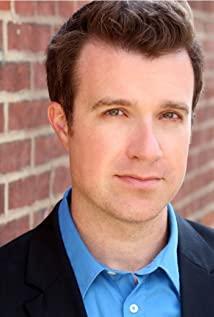Author | Xiaole
want to go out, want to go home
"I need to ask you a few questions, which may be very personal, you just need to answer 'never', 'rarely', 'sometimes', 'always'."
When the movie runs to the second half, the four frequency adverbs in the title of the movie finally appear, and we finally know the origin of the title of the movie. The camera is aimed at the 16-year-old girl Xiaoqiu. As the questions asked by the social worker gradually deepened, Xiao Qiu's mask of deliberately remaining calm was gradually shattered. What we see is a vulnerable, overwhelmed 16-year-old. The secrets and pain she deliberately hides are no longer visible under the camera. But even so, Xiao Qiu didn't collapse or burst into tears. She always suppressed her tears and wanted to answer these questions that made her feel uncomfortable as quickly as possible. The camera has always maintained a restrained distance, so that the audience has been able to stand in an objective position and look at what happened to Xiaoqiu. At the same time, start looking at ourselves.
Never Rarely Sometimes Always ( 2020) is a movie that focuses on the subject of underage female abortion. The film won the Silver Bear Award of the Jury Prize in the Main Competition Unit of the 70th Berlin International Film Festival and the Special Jury Prize of the Sundance Feature Film Unit.
The film follows Xiao Qiu, who decides to have an abortion after an unwanted pregnancy, and her cousin embark on a journey to New York for an abortion. Following these two young girls on their journey, we also see the pervasive oppression and bullying of women in today's social environment.
Invisible "discomfort"
The film makes us feel the "uncomfortable" environment in which the protagonist lives from the very beginning: whether it's being suddenly yelled "slut!" during a school performance, or being self-sufficient after the performance. The taunts, and the incessant kissing of the hands of the shopkeepers who grabbed the children in the supermarket... These all show the audience that even in the self-proclaimed "open" and "equal" America, the situation of women is still worrying. Underage girls in this environment are more likely to be isolated and helpless like Qiu and Skyler in the film.
Xiaoqiu lives in a restructured family. My parents have to take care of my two young daughters; my father thinks that Xiaoqiu "has a problem with his brain". Xiaoqiu has a great estrangement from her parents' family. This estrangement also made Xiaoqiu seem indifferent, widowed, and rebellious.
Unlike Xiaoqiu, Kessler, who looks sweet, is cheerful and kind. But these advantages have become "active temptations" from women in the eyes of some men . When Skyler was working part-time as a cashier in the supermarket, her casual chat was immediately met with a question from the male customer:
When Skylar explicitly refused, the male customer even insisted on leaving the address to Skylar. Kesler just gave a distant smile. It makes one think that perhaps Skylar has been through something like this too many times. Help and comfort never came to her.
In the locker room, there were only Skyler and Xiaoqiu, when Skyler asked——
"Have you ever thought of yourself as a man?"
"I've always wanted to."
This simple and straightforward dialogue expresses the voice of many women at the moment. It is undeniable that in many situations, whether in the workplace or in life, men enjoy resource advantages and occupy a dominant position. At the same time, due to stereotyped thinking, men are unaware of the "advantage" they enjoy, or have a "don't care" attitude about it. Many women who are unable to obtain equal status and the right to make their own choices can only silently imagine whether the situation would be different if the genders could be interchanged.
Legalization of Abortion and Female Autonomy
Taking this film as an example, after a teenage girl becomes pregnant, all the consequences are borne by the woman alone. The person who made Xiao Qiu pregnant is deliberately hidden in the film. We don't know who he is or whether he is also a minor. But through the songs that Xiao Qiu sang at the beginning of the film, and when asked by the social worker "whether someone is hurting you", the outline of this man who bears great responsibility gradually emerged - Xiao Qiu was unwilling to do so. In this case, he was forced to have a relationship with the other party, and even finally conceived a child without his own willingness. From this perspective, Xiaoqiu is a victim.
Society doesn't seem to care who is the perpetrator and who is the victim in the relationship. Due to religious beliefs and a number of culturally specific reasons, "abortion" is seen by many Americans as the embodiment of sin -- the killing of an innocent life. The state of Pennsylvania, where Xiaoqiu is located, has clear laws restricting female abortions, including the subsidiary clause that minors must be accompanied by their parents if they want to have an abortion. At the same time, the local pregnancy test center advocates the method of giving birth to a child after giving birth to a child rather than aborting a young woman. When Qiu made it clear that she wanted to have an abortion, the elderly woman in the pregnancy test center not only concealed her exact number of weeks of pregnancy, but also played a brainwashing anti-abortion religious video.
All of this meant Xiao Qiu had to make a farther journey—crossing state lines to a nearby city that allowed abortion. But even there, there are still many people who hold up the statue of St. Mary or Christ and oppose abortion.
In fact, behind the question of whether abortion is legal, it is not just religious issues involved. It's more about which side of life people value more. Proponents of legalizing abortion argue that the fetus is part of a woman's body until it is born. Since anyone has the right to make decisions about their own bodies, women can naturally decide whether or not to leave their fetuses in their wombs. But the opposition believes that the fetus is already an independent living body. To choose an abortion is to choose to kill a life, which is a murder. This is a clear violation of today's ethical standards and laws.
In 1973, the Supreme Court of the United States divided the pregnancy period into three stages: the first stage is within 3 months of pregnancy, and women can decide whether to terminate the pregnancy; the second stage is 4 to 6 months of pregnancy, during which the state government can Abortion is subject to certain restrictions; abortion is not permitted in the third stage of pregnancy between 7 and 9 months. It can be said that such a decision produced a reconciling and balancing effect between the two factions of support and opposition. At the same time, not allowing abortion for 7-9 months may also be out of the protection of women's own physical health.
All kinds of opposition to "legalization of abortion" are extremely unfair to a woman in a disadvantaged position. Especially in the movie, the pregnancy test center Xiaoqiu went to first exerted moral pressure, and then used deception, which greatly hindered Xiaoqiu's subsequent decisions and actions. It is "semi-forced" to make a woman's decision to keep her child. At the same time, the crowd, standing in the center of pregnancy and praying, silently denounced women who want abortion. Under the double influence and pressure, it affects a woman's final autonomous decision.
"As long as it's your own decision"
In the film, Qiu Zhuan finally arrived at the pregnancy test center in New York State. When the social worker asked Qiu what made her decide to terminate the pregnancy, Qiu said, "I'm just not ready to be a mother." The opposite answer was undoubtedly a great respect for a woman——
"As long as it's your own decision, it's fine." Such an attitude starts with seeing the other person as a person who is independent and has the right to decide his own life. In other words, it puts others on the same level as oneself. Even if there is disagreement, it will respect the decision made by the other party after careful consideration.
The film Mid-Autumn Festival and Skylar experienced a rush of two days and two nights. The emotion between the two sisters is impressive. When Skyler had to leave with the boy he met during the journey in exchange for money for the return ticket, Xiao Qiu, who was dragging his luggage and tired body, hid on the side of the pillar and stretched out his fingers, hooking Skyler's hand.
The emotional connection between the two people at this moment cannot be stronger. When the hands of two people are together, we can feel the mutual dependence and support between the two, and we can also feel Xiaoqiu's apology and remorse, as well as Skyler's reluctance and helplessness.
Unknown journey starting point
Director Eliza Hitman first wanted to make such a film because of a woman's death in Ireland in 2012. Savita Halappanavar, 28, was admitted to an Irish hospital with signs of a miscarriage, but as her condition worsened and complications emerged, she requested an emergency abortion , but was rejected many times until she finally died of complications. Abortion was considered a crime in Ireland at the time. That stance was not radically changed until 2018, when Ireland finally recognized the legality of abortion for women.
After reading the report, Hitman came up with the idea of documenting "these untold journeys women take," eventually shifting the story to the United States. To make the whole story feel more real, she did a field trip in Pennsylvania to learn about how local pregnancy centers work, and even went through the process herself once. During the filming of the film, the director invited real social workers and doctors to participate in the performance. The social worker we saw who asked Qiu Xun in the later period was one of them. This is also a great help for Sidney Flanigan, who plays Xiaoqiu for the first time in the filming.
Sidney Flanigan, a musician, had never been an actor before making this film. When she first received the role invitation, she refused without hesitation. It wasn't until she got off the phone with Hitman and read the script that her mind changed, and she said she always wanted to contribute to the issue.
After Flanigan returned home after filming the film, there was another round of anti-abortion debate in American society, and some state governments even signed a bill that "prohibits abortion for women who are more than 6 weeks pregnant" at that time. Franey later mentioned that he couldn't believe that "the world could go backwards" , and also deeply realized the necessity of "Never, Rarely, Sometimes, Always".
Social reflection through the lens of private
In this film, Hitman does not rely solely on actors to emphasize the realism of the film. The film uses a lot of close-up shots and breathing and slightly shaking shots, it seems that our eyes are always following the journey of the two girls. It is with the very delicate picture telling of the director and the director of photography that makes the story seem so real.
There are many scenes in the film that were shot from the subjective perspective of the characters. For example, when Skyler began to throw the ball in the bowling alley, the boy's focus was not on whether she had thrown the ball, but on Skyler's buttocks. , this uncomfortable feeling is self-evident.
Even if it deliberately maintains a very close distance with the characters in the film, the film does not deliberately promote a certain position, or deliberately magnify and use the various experiences of the two girls to refute social phenomena and gain "sympathy" for the girls.
On the contrary, the film is more about allowing people to observe what the two girls are doing up close and leaving enough space for the audience to think. What we should think about is not just the legalization of abortion , but the growth of young people and the plight of vulnerable groups , a series of issues that need to be discussed and improved by society.
*This article was originally published on the cinewoo public account. repost is not allowed without consent.
View more about Never Rarely Sometimes Always reviews











